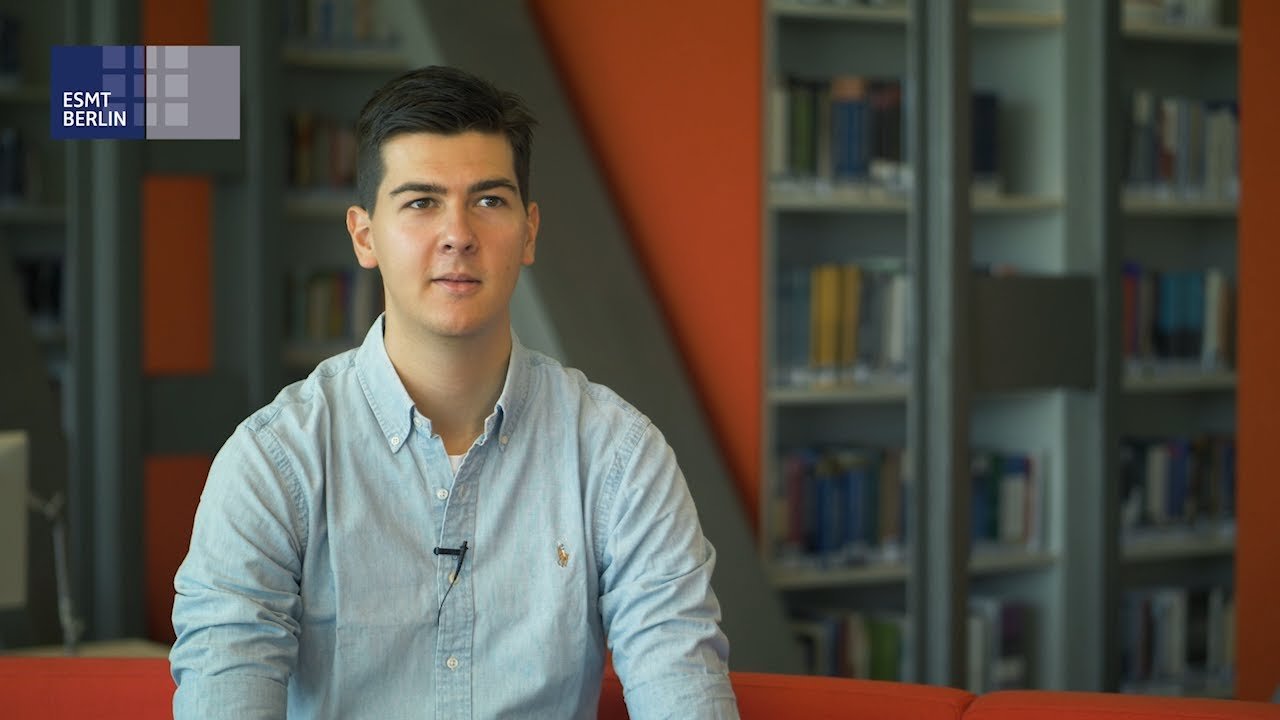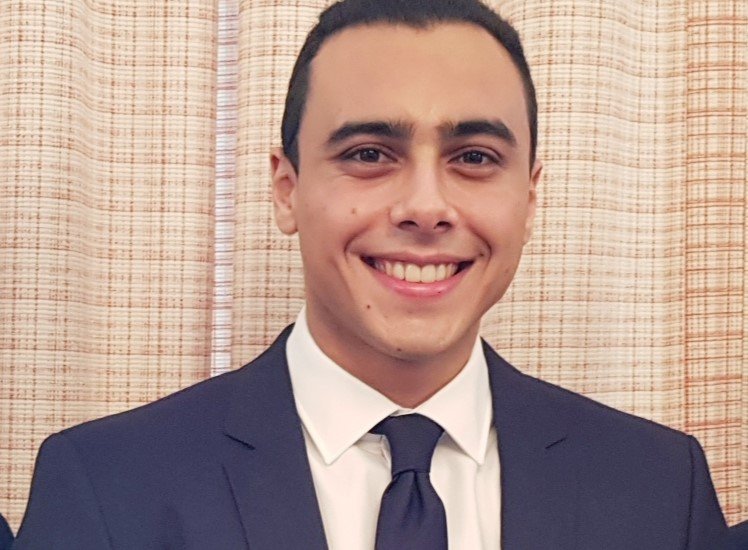
Portfolio Management Program
You are an analyst in the first year..
Conducting financial and economic research and analysis to understand the fundamentals of active investing and asset management.
...and a portfolio manager in the second year
The resulting real-money portfolio is handed over to the incoming class of portfolio managers. They then take over the responsibility of further developing a strategy to allocate and manage the funds.
The PMP overview
The Portfolio Management Program (PMP) is an optional two-year not-for-credit project during your Master program in which selected students actively manage a real-money portfolio - 1 million Euros per group with a total portfolio value of 3 million Euros. The concept of the PMP enables you to combine theory and practice to develop real trading strategies on the open market. PMP participants learn how to cope with the positive and negative dynamics of active investing and how to develop their own strategies in global markets.
The PMP in detail
-
Program design
In your first year you become a financial analyst and get to know the portfolio, while supporting the second-year students who act as portfolio managers and are in charge of the actual asset management process. This structure ensures that portfolio decisions are coordinated among analysts and managers, which is crucial to insure a smooth transition of the portfolios to the next student cohort.
The official PMP meetings take place every other Friday during the Master program and can be categorized as follows:
Introductory Session
The first sessions will be labeled as introductory sessions, where experienced tutors equip the new analysts with all of the theoretical and practical knowledge needed to participate in the PMP. These sessions reinforce the knowledge you acquire during the first modules of your Master program and enhance it with applied knowledge in finance, economics and portfolio management.
Manager Meeting
The managers present a portfolio update about current performance and risk measures. Additionally, they give an update of the trades that were implemented and those that are planned. Periodically, they present a general market outlook with respect to their portfolio composition.
Analyst MeetingThe analysts present their research on market regions, asset classes or investment strategies that are linked to the current portfolio composition. Moreover, they are asked to present new ideas that are discussed with their managers and tutors in advance.
Expert TalkOccasionally, professionals from academia or finance join to share their insights with the PMP students.
Technical MeetingThese meetings involve exercises related to a quantitative topic. Each student group solves a set of empirical asset management problems and presents the findings to their tutors and mentors.
-
Group structure & strategies
Emerging & frontier markets fixed income - The ZZ GroIs mentored by the Managing Directors of ZZ Vermögensberatung AG and by Mr. Peter Pühringer
We implement mainly an FX and fixed income carry strategy with a focus on emerging markets. The strategy comes closest to the industry definition of global macro investing with value investments playing an important role. Additionally, exposure to other risk premia could be of interest, e.g. volatility. Moreover, the duration factor is of interest for long-term investments due to the large interest rate differential and possible movements in long-term interest rates and their effects on bond investments.
Quantitative Risk Premia - Systematic harvesting of risk premia across all assets - ESMT Group
The ESMT group will develop a strategy mentored by Dr. Gerald Leitner, who serves as an executive in residence at ESMT. Mr. Leitner has a vast amount of experience in the hedge fund industry and will help shape the investment strategy. A systematic cross-asset risk premia based approach with a stronger equity focus than the other groups could be an interesting starting point for this group.
Best Academia - Asset management based on state-of-the-art academic research - Humboldt Group
The Humboldt Group is mentored by Prof. Adam and Prof. Stomper and explores research-based quantitative investment strategies in asset management. The equity sub-team applies a parametric portfolio policy approach, using advanced optimization algorithms to develop investment strategies that maximize risk-adjusted returns. The commodities sub-team implements a commodity futures strategy based on the momentum of the basis. Going forward, the group wants to focus on deploying a new fixed-income strategy in the rapidly changing interest rate environment.
-
Faculty and mentors
Prof. Dr. Alex Stomper
Alex is a Professor of Finance at the School of Economics and Business of Berlin's Humboldt University. He graduated from the University of Vienna, where he also obtained his "Habilitation" in the year 2007. From 2007 to 2011, he taught at the Institute for Advanced Studies in Vienna, and at MIT's Sloan School of Management. In 2011, he moved to Berlin.
Prof. Tim Adam PhD
Tim is the Rudolf-von-Bennigsen-Professor of Corporate Finance at Humboldt University, Berlin, Germany. He received a PhD in Economics from the University of Virginia in 1997. Since then he taught at internationally leading universities, such as the Massachusetts Institute of Technology, the University of Michigan, the Hong Kong University of Science & Technology, and the National University of Singapore. In 2008, he joined the School of Business and Economics of Humboldt University.
Dr. Gerald Leitner
After receiving a PhD degree in computer science from UCLA and a short stint as Assistant Professor at Columbia University, Gerald started his career in finance at Bear Stearns in New York. He then spent 15 years as a Managing Director at Mariner Investment Group, a $10B New York hedge fund. He moved to Berlin in 2015 and is currently Visiting Faculty and Executive in Residence at ESMT Berlin, while also pursuing his interest in start-up financing.
Sascha Czerwenka
Sascha joined ESMT Berlin in September 2016 as a research associate. He is also an Senior Associate at ZZ Vermögensberatung (Schweiz) AG in Vitznau, Switzerland and a member of the foundation board of P&K Pühringer charitable foundation. Sascha received a Master of Science in Money and Banking from University of Exeter and holds a Bachelor degree in Economics from Vienna University of Economics and Business. Moreover, Sascha is a CFA Charterholder and an alumnus of the portfolio management program (PMP).
-
Who should apply?
PMP applicants are selected during a competitive interview process after the start of the ESMT Master program. Applicants should bring a genuine interest in financial markets and have some introductory experience with quantitative tools, such as a basic knowledge of Excel and/or experience in any kind of statistical software like R or Matlab. You will learn most practical aspects of portfolio management during the program. However, a solid theoretical foundation in finance, investing, economics and/or internship or work experience in those areas is an advantage during the application process.
You should bear in mind that the program can be quite demanding. In addition to the general Master program workload, you should expect to invest about six to eight additional hours per week during the PMP.
-
Application process
Interested ESMT Master students are invited to submit applications, during their first semester and will then be shortlisted and invited for an interview. Following selection, there will be a kick-off meeting, the tutors will introduce the program and the three different groups. Afterwards, students can choose their preferred group.
All applications should include the following material (aggregated into a single PDF and ranked as follows):
1. Curriculum vitae
2. Letter of motivation (describe your background and motivation for the PMP)
3. Transcripts (most recent grades)
4. References of employment (if applicable)
Within the letter of motivation, please answer the following questions:
1. What is the PMP and which of your skills do you think will be valuable for the program?
2. Which PMP group do you want to join and why?
3. If you are selected, what kind of challenges in the current investment environment will you probably face as portfolio manager?Please note
-
Application deadline: October 27, 2023
-
Applicants shortlisted for interview will be notified by Wednesday, November 8, 2023.
-
Interviews will take place between November 9 and 10, 2023.
-
Please send your application to PMP@esmt.org
-
-
Facilities
The PMP Berlin facilities are located at the ESMT Satellite Campus Berlin-Schöneberg, on the 6th floor of Akazienstraße 3A. The satellite campus includes Bloomberg terminals and is dedicated to PMP students for research purposes. Space Shack, a co-working space founded by ESMT Berlin MBA alumni, is located in the same building.
Once per week, students, tutors and mentors gather there for an informal meeting. Official meetings, where PMP participants present their analyses, take place every other Friday.
-
History & partners
PMP History
The PMP, established in 2003 by Peter Pühringer, the founder of ZZ Vermögensverwaltung GmbH, in Vienna, Austria, is a unique and innovative approach combining financial theory with practical asset management. In Vienna, the PMP is part of the Research Institute for Capital Markets and the Vienna University of Economics and Business. In 2010, a second PMP was developed in cooperation with the University of Zurich and the ETH Zurich. As of 2017, the PMP runs as part of the ESMT Berlin Master in Management program.
Partners
-
Portfolio Management Program Vienna, Part of the Institute for Strategic Capital Market Research
-
Portfolio Management Program Zurich, Part of the Center for Portfolio Management of the University of Zurich
-
Portfolio Management Program Berlin, Part of the Finance Group of the Humboldt University of Berlin
-



